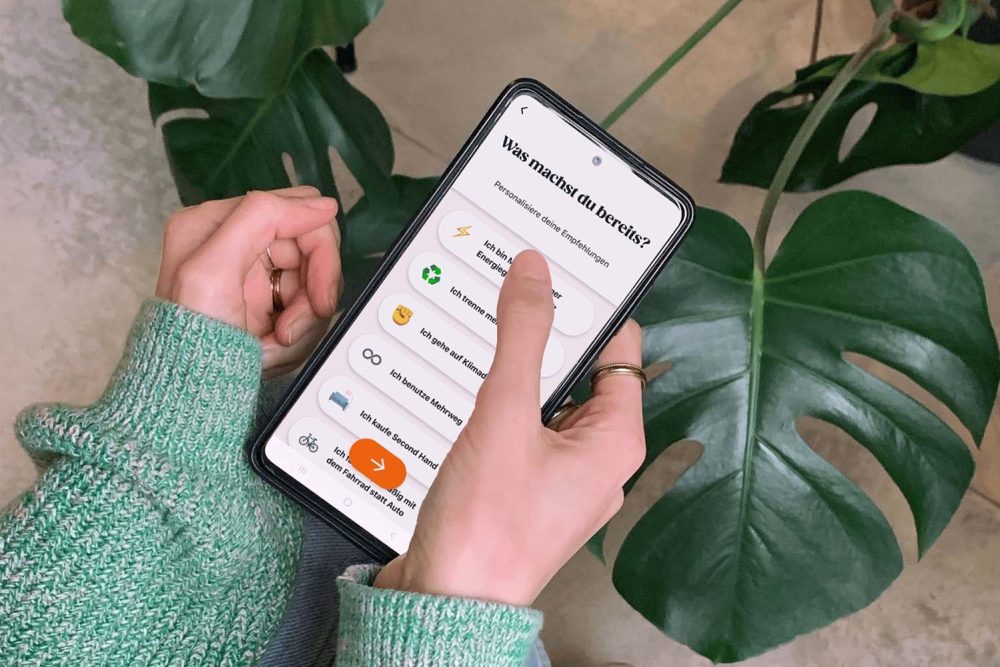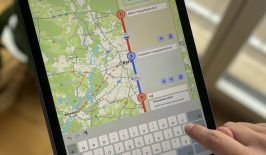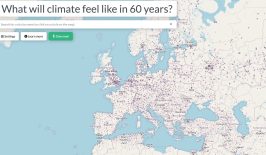The homepage of the OneClimate app features colourful instructional squares set against a crisp white background. Each square has a call to action accompanied by a corresponding emoji-style graphic. When clicked on, they navigate to a new section of the app, prompting you to calculate your carbon footprint. Or, you can simply swipe through your ten daily climate tips. You’ll gain points, establish streaks and receive the dopamine hit we’ve come to associate with swiping on our phones—all while helping the planet.
The app’s founder, Simon Bail, says that OneClimate is aiming to be the Duolingo of climate action. Launched in August 2023, it already has 100,000 users and was Germany’s most downloaded climate app of that year. With its clean, colourful design, user-friendly interface and focus on points, progress and streaks, will gamifying individual climate action have the impact OneClimate hopes?
OneClimate inspires action through tips and streaks
“What I love about Duolingo so much is that they’ve turned something difficult into an experience that you like to pursue every day,” says Bail. “[Using Duolingo] brings you joy and a sense of meaning. Why can’t that be done for climate action?”
OneClimate starts by asking you to input data relating to your lifestyle so it can calculate your carbon footprint. Then, you’ll get a figure that you can try to reduce based on their tips. Swipe through ten daily tips (Bail mentions Tinder—the dating app that popularised swiping—as another inspiration) that vary from buying a refurbished smartphone to heating your home sustainably. The tips are digestible and come with ‘climate points’ attached. If you swipe right on a tip, indicating that you’ve already integrated it into your lifestyle, those points will be added to your overall score.
The app also has a streak feature, which presents users with a variety of climate-friendly actions. These range from “I wasted zero food today” (low effort—and a corresponding 10 points) to “I switched my car for cycling/walking” (medium effort; 20 points) to “I installed a rainwater harvesting system” (high effort; 40 points). Users can tick off what they achieve and track how long they can maintain a streak of positive change.
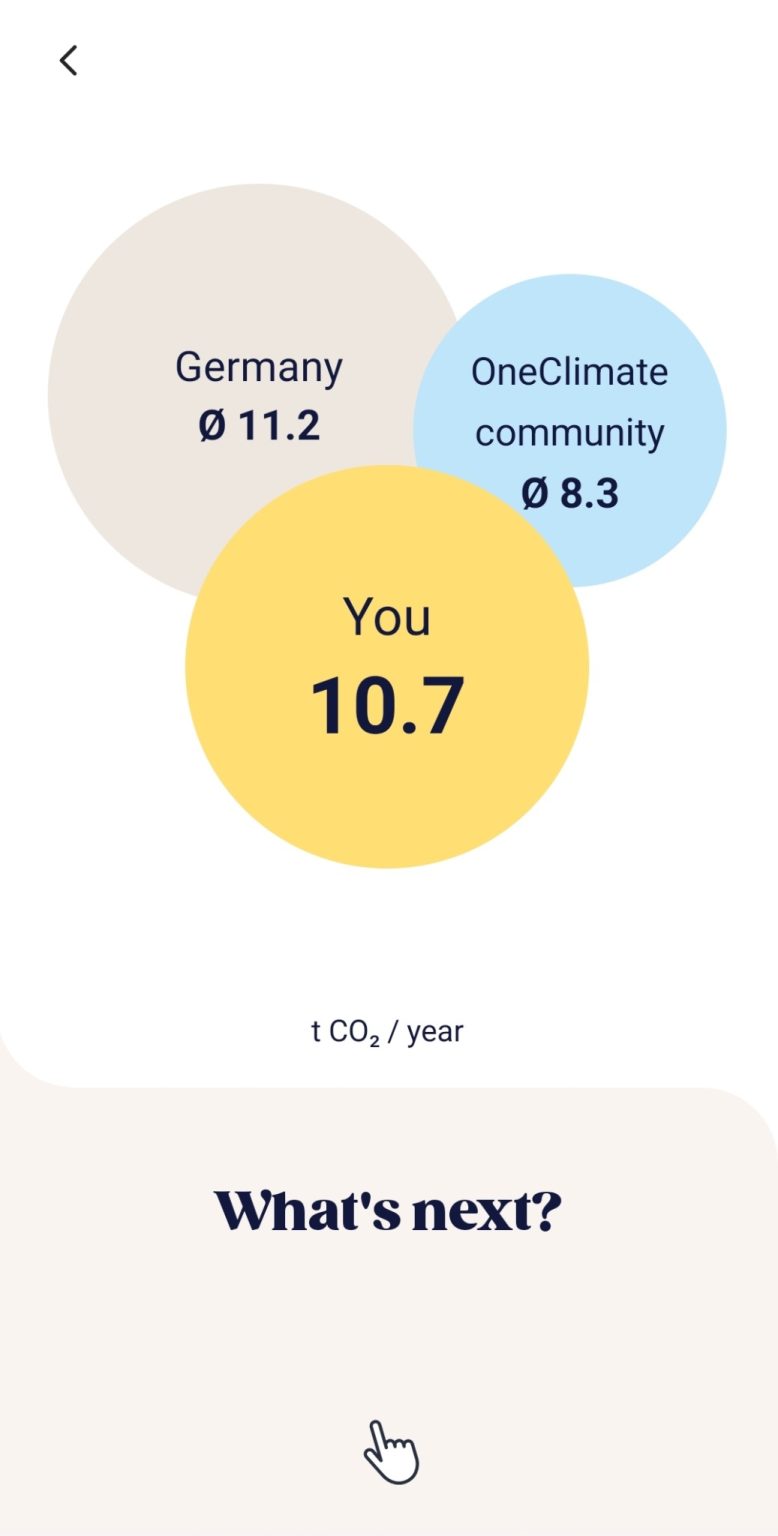
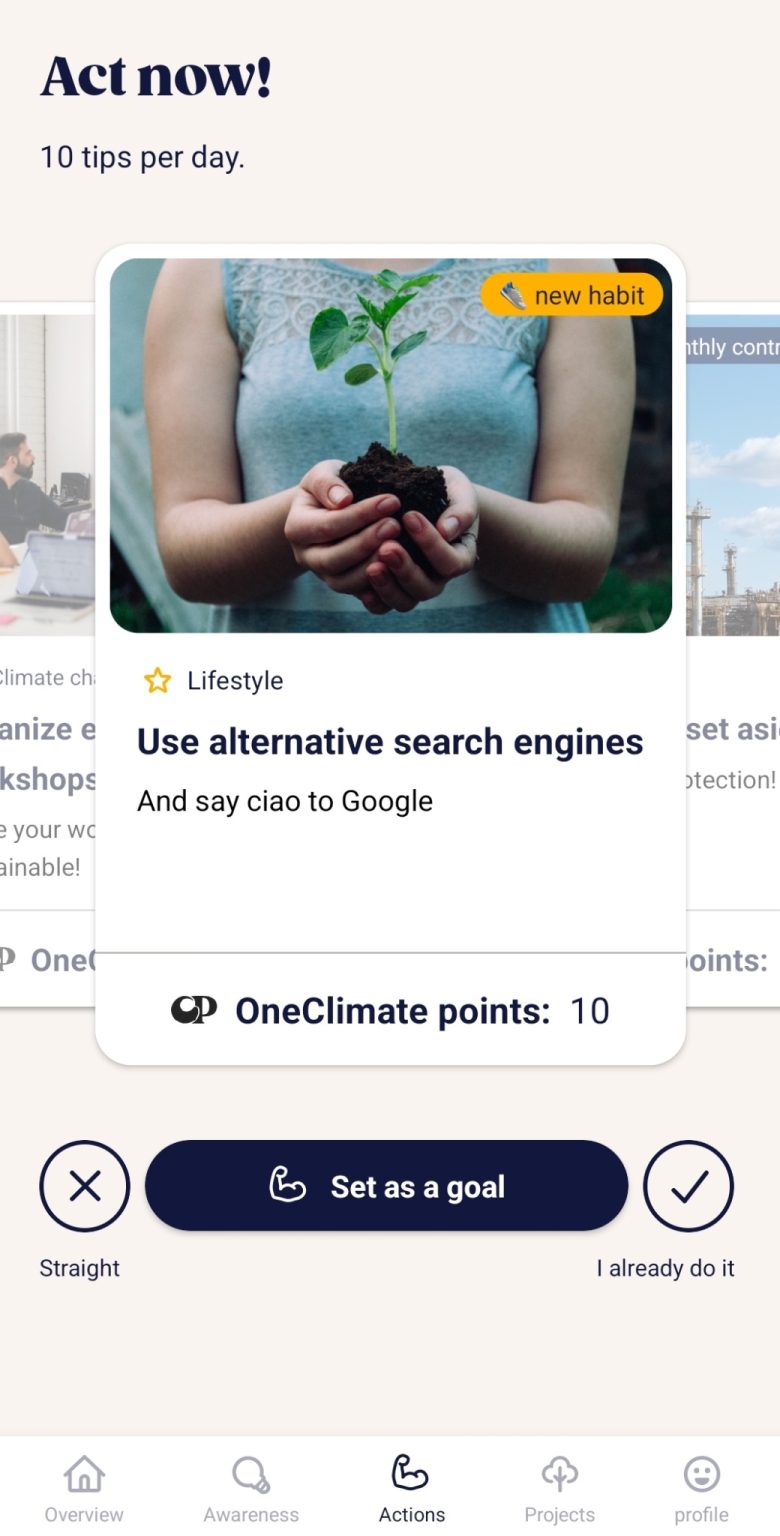
OneClimate App Screenshots
The app hopes to become “a collective stream of change”
Imagine you start integrating OneClimate’s tips into your daily life. Your friends would probably notice you choosing a vegetarian or vegan option when you’re out for dinner. Your roommates might ask why you’re scrupulously collecting rainwater on your balcony to water your plants. Your work colleagues may take note of how much more regularly your bike is parked outside the office rather than your car.
According to Bail, this creates “a collective stream of change”. One individual’s actions “plant seeds among employees, neighbours and family members.” Bail explains how this is based on the principle of the carbon handprint, alongside the carbon footprint, which represents “the non-measurable positive change you bring to the world by inspiring another person [to take climate action]”.
Should individuals be responsible for taking climate action?
But does the concept of the app put too much pressure upon the individual, when governments, corporations and broken systems should also bear the weight of responsibility for the destruction of our planet?
Bail doesn’t think so. “The more sensitive you are to climate topics, the more willing you are to sign petitions and lobby politicians,” he points out. He gives another example: even though the green energy transition depends on policies, you still need people to accept they need to change the heating systems in their homes. “There’s a dynamic between individual and systemic elements,” Bail continues. “By planting as many ideas of will for change in individuals, we start developing a culture that promotes sustainability, which can be translated into a political drive for change”.
Meanwhile, OneClimate users are busy swiping away, growing their streaks, collecting points and integrating tips into their daily lives. “Climate action can be daunting,” Bail concludes. “We want to change [climate action] from something that [sparks] pressure, sorrow and anxiety into something that brings joy.”
